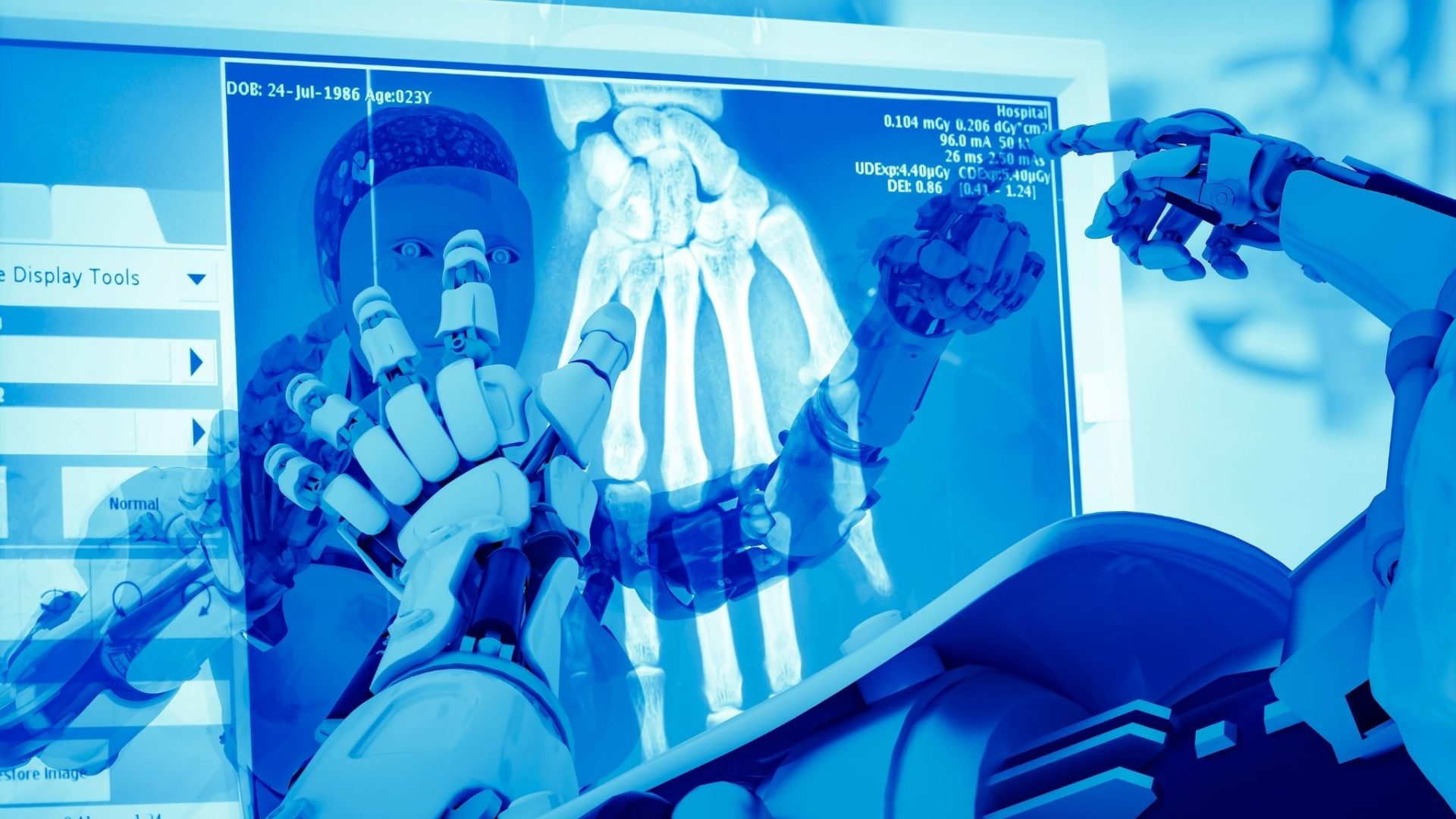Artificial intelligence or AI is a multidisciplinary computer science that can predict conclusions without any direct human intervention.
To do this, it needs :
- Several algorithms;
- Deep & Machine Learning;
- Heuristics ;
- Correspondence models;
- Cognitive computing.
AI was primarily designed to provide solutions to complex problems that humans are not 100% capable of solving.
How has AI made its way into medicine today and how will it revolutionise the world tomorrow?
Artificial Intelligence and medicine: a promising start
AI is now being used in a number of areas ranging from agriculture to automotive, medicine and healthcare services. It took several years before AI and e-health knowledge engineering could be proven in medicine and biology. Some AI-based projects related to healthcare have even attracted more investment than those in other sectors of the global economy.
40% of pharmaceutical and life sciences companies say they have already deployed AI technologies and are satisfied with the results.
Quite encouraging.
But what is the reality? Hospitals and clinics often have vast amounts of medical data at their disposal. But how do we process all the data intelligently without the risk of missing out on information that is crucial to the quality of care?
When confronted with too much information, information overload leads to misinformation and this can lead to dysfunctional decision-making throughout the organisation.
AI will thus be able to intervene in the process by modelling and analysing data to predict diseases and find cures, notably thanks to: innovative treatment materials; the estimation of life expectancy; the speed of diagnoses; and finally the rapid understanding of correlations between certain factors and our health conditions.
From the data and with the help of Deep & Machine Learning, AI-based computing power can predict significant trends.
How is AI used in medicine today?
AI-based solutions in the medical field are growing rapidly and are above all very diverse. Here are some classic examples:
- Automatic appointment scheduling;
- Registration in medical centres;
- Digitisation of medical contracts and records;
- Automatic vaccine reminders for children and pregnant women;
- Algorithms for personalising drug doses;
- Or improved genomic editing.
Let’s focus on the 4 main applications of AI in medicine today, which have been very successful in recent years:
- Automatic diagnosis of diseases: With the growing progress of deep learning, diagnosing a disease is now easier and faster. Powerful models can now detect complex diseases such as cancers or ophthalmic pathologies with the same precision and accuracy as medical professionals.
- Rapid production of medicines: The pharmaceutical and drug distribution industry remains one of the most expensive economic sectors, both for states and citizens. But with the advent of AI in the analytical processes of drug manufacturing, data processing is becoming more efficient, saving hundreds of millions in investment and years of work.
- Personalize the treatment: The personalization of treatments is a very complex statistical work that AI manages to automate. Thanks to this work, it will be able to help better understand and anticipate the reactions of patients to a given treatment. Thus, with the analysis of all these characteristics, the algorithm is able to predict the treatment best suited to the patient according to his pathology.
- Improving gene editing: With AI, the development of RNA (Ribonucleic Acid) has accelerated, allowing impressive genomic editing by introducing genetic material into cells. The use of genome editing implies unprecedented possibilities for treating certain diseases.
What future for Artificial Intelligence and medicine?
The healthcare sector is evolving as AI and Machine Learning gain popularity. Studies show that spending on AI in the medical sector is expected to increase by 48% at an annual rate between 2017 and 2023.
Several predictions can be made about the impact that AI will have on healthcare in the near future. Here are some of them:
- Integrating the mind with the machine: AI-supported brain-machine interfaces (BMIs) may soon be able to enhance motor function in some patients. Controlling the body by thought would be a significant advance in the world of AI and health.
- Better radiology tools: AI-enhanced radiology tools will provide sufficient accuracy to replace tissue samples in the near future.
- Electronic Health Records 4.0: EHRs allow to compile all data (social, clinical, psychological…) of a patient to determine the risk of disease and find a possible treatment as soon as possible. However, it is sometimes difficult for a doctor to analyse all the data efficiently and draw up an assessment quickly. AI comes into play here by automating the completion of EHRs and helping to reliably predict disease risk by identifying hidden connections between data sets.
According to BMC Medical Informatics and Decision Making, an AI was able to analyse the clinical notes of 55,516 EHRs comprising 150,990 notes and identified 3,138 prostate cancer patients in just 8 seconds. 8 seconds! Imagine how long it would take a human to achieve the same result?
- Reducing the risk of antibiotic resistance: EHR data could also be used to identify and anticipate infection patterns and warn patients at risk, even before they develop symptoms.
- More accurate analysis of pathology images: Since AI is able to scan images to the nearest pixel, researchers may be able to identify details and nuances invisible to the human eye.
- Further use of immunotherapy in cancer treatment: AI will be able to analyse a complex set of data about a patient’s unique genetic make-up. The ultimate goal would then be to target the ideal therapy to eradicate the disease as quickly as possible.
- A mobile lab for quick and easy diagnosis: Ideal for people who are isolated or unable to travel to hospitals or clinics. How does it work? Simply enter the patient’s symptoms on the connected mobile device. The “mini lab” will analyse the data and announce the samples that need to be taken (saliva, urine, blood, etc.). The analyses will then be sent to a health professional who will be able to make a complete diagnosis quickly and remotely.
The next few years will be crucial for Artificial Intelligence and medicine. If technical advances continue to progress at this rate, the growth of innovative technologies in medicine will be pharaonic!

